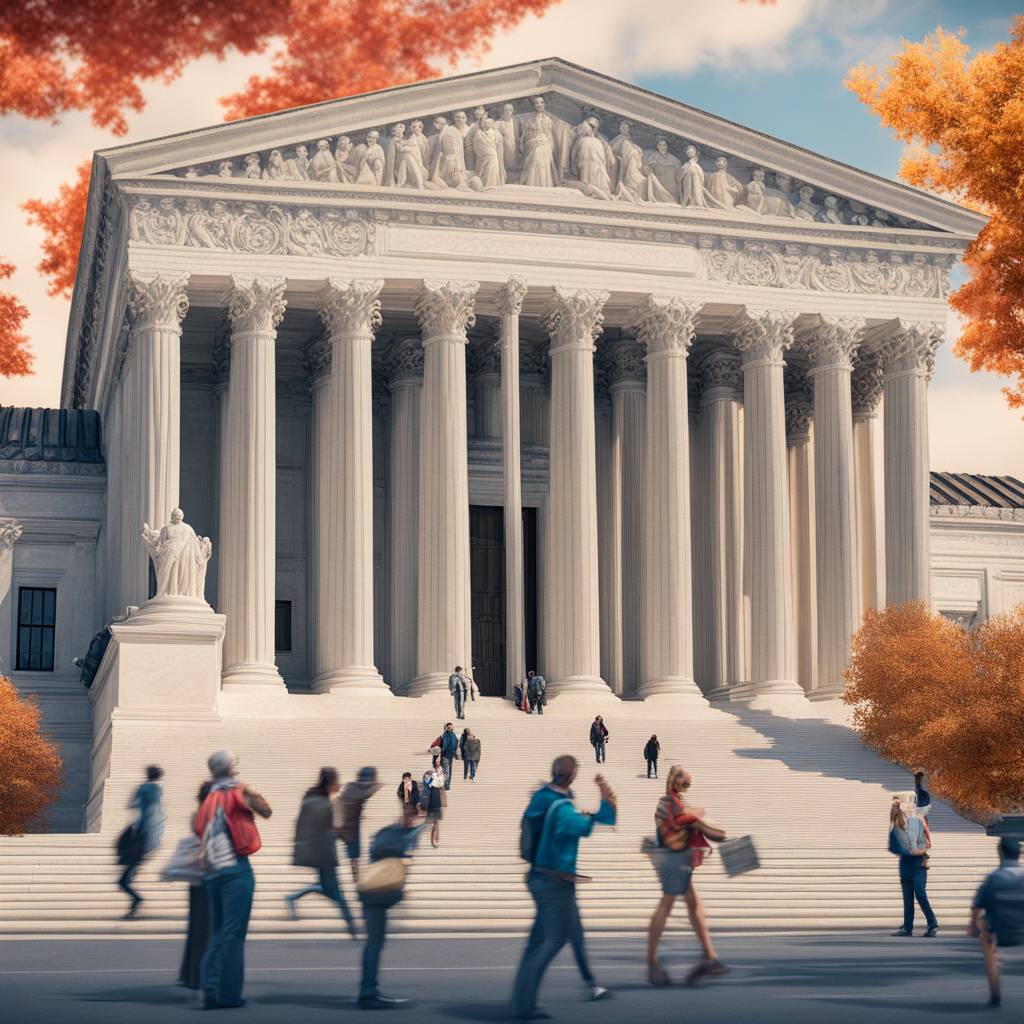A lawsuit challenging the constitutionality of President Biden’s voting access executive order is set to go to the Supreme Court ahead of the November elections. The lawsuit was brought by a group of Pennsylvania lawmakers who claim that Executive Order 14019, which aims to promote access to voting, is essentially an executive get-out-the-vote effort designed to benefit the president’s political party and his own re-election. The lawmakers argue that this action is unconstitutional as Congress has not passed any laws authorizing such actions from the Oval Office. The case was initially dismissed, but the group’s attorney plans to appeal to the Supreme Court.
The executive order in question directs various federal departments and agencies to partner with state election officials to promote voter registration and eliminate barriers to voting. It specifically instructs agencies like the Department of Health and Human Services, Department of Housing and Urban Development, Department of Education, and Department of Agriculture to carry out voter registration activities using federal funds. The complaint alleges that the order was largely drafted by a left-leaning policy organization and violates the Electors Clause, Elections Clause, and the rights of individual legislators.
Critics of the executive order argue that it unfairly targets welfare populations with a get-out-the-vote effort funded by taxpayers. The Foundation for Government Accountability (FGA) filed an amicus brief in the case, stating that the Biden administration’s plan could swing the election outcome by targeting welfare recipients who historically vote Democrat. The FGA is also involved in a lawsuit against the Department of Justice over documents related to the implementation of the executive order. The outcome of this legal battle will have significant implications for the upcoming elections.
The case has sparked a debate over transparency and the use of federal resources for voter registration and mobilization activities. Progressive activists have hailed the executive order as a victory for expanding access to the ballot box, while critics argue that it gives the Biden administration an unfair advantage in the election. The lawsuit raises questions about whether the president has overstepped his authority and violated the law by issuing the executive order without congressional approval.
The Foundation for Government Accountability’s study found that Democrats have a significant advantage among voters enrolled in welfare programs, with margins increasing by more than 30 points compared to low-income voters who have never been on welfare. The advocacy group argues that the Biden administration’s efforts to use federal agencies to carry out voter registration activities are being done in a secretive manner despite calls for transparency from Congress, State Attorneys General, and Secretaries of State. The Supreme Court will likely play a crucial role in determining the legality of the executive order and its impact on the upcoming elections.
Attorney Erick Kaardal, representing the Pennsylvania lawmakers, believes that the Supreme Court will rule in favor of his clients and hopes to have the issue temporarily resolved by stopping the executive order while the case proceeds in lower courts. The outcome of this case will have significant implications for election rules and regulations leading up to November. The Department of Justice, representing the Biden administration, has not yet responded to requests for comment on the case. The legal battle over the constitutionality of President Biden’s voting access executive order is shaping up to be a critical issue heading into the November elections.













